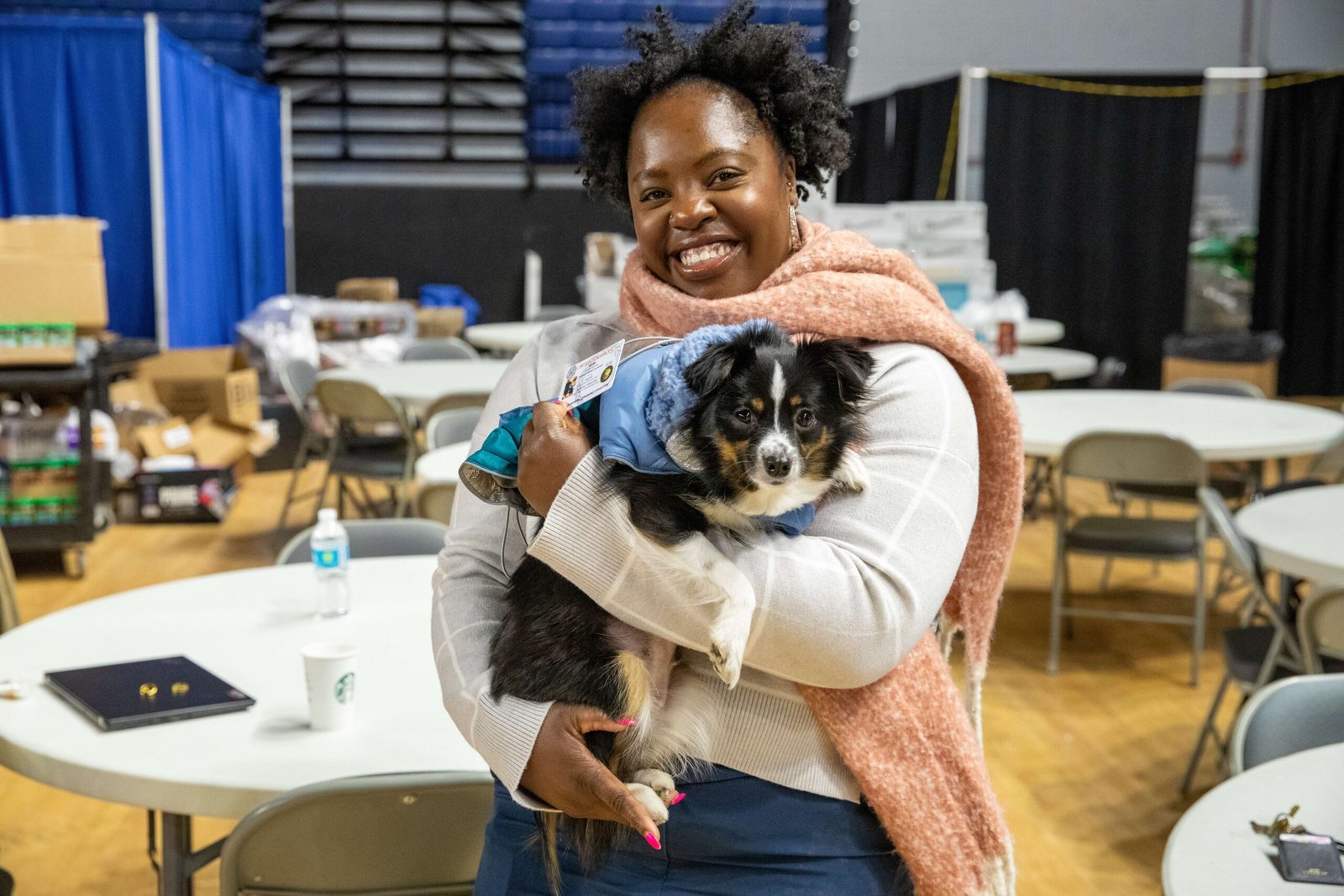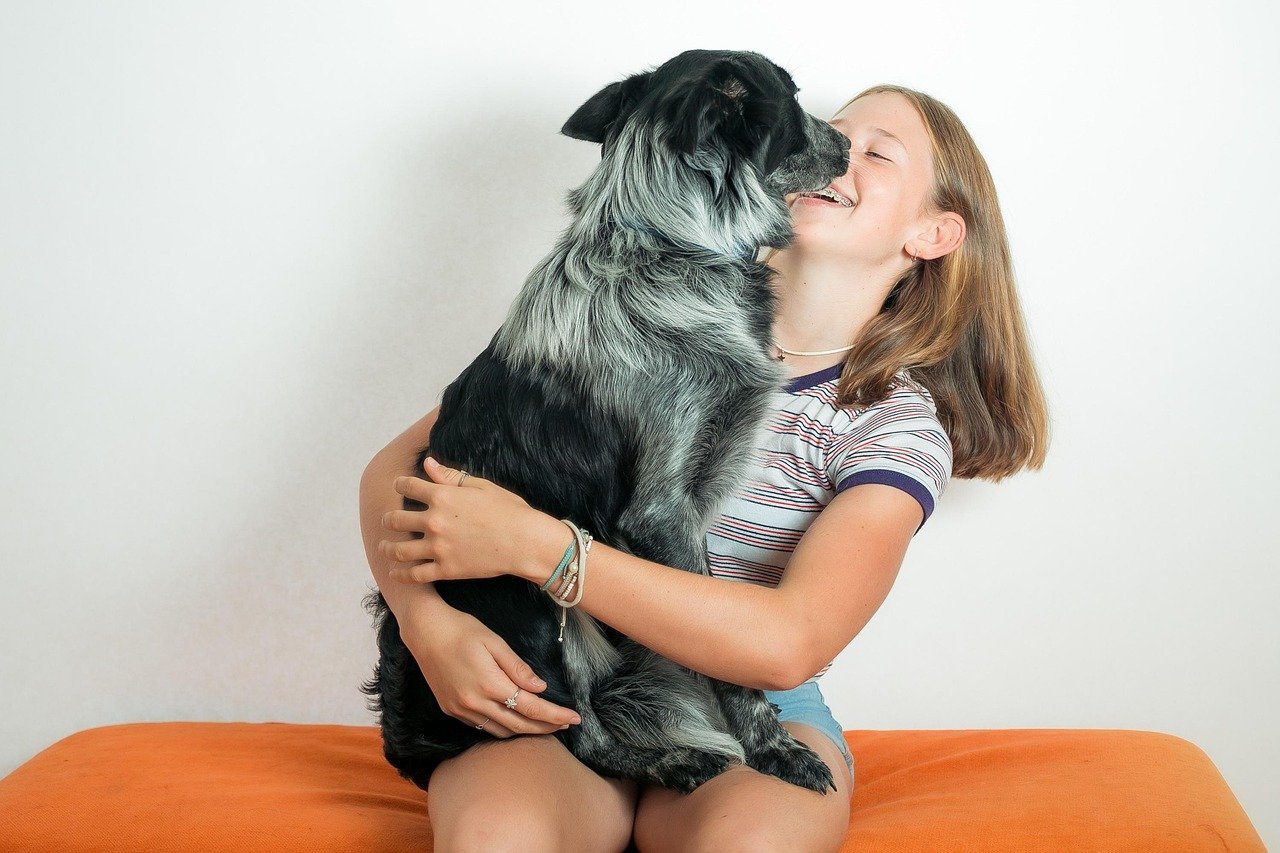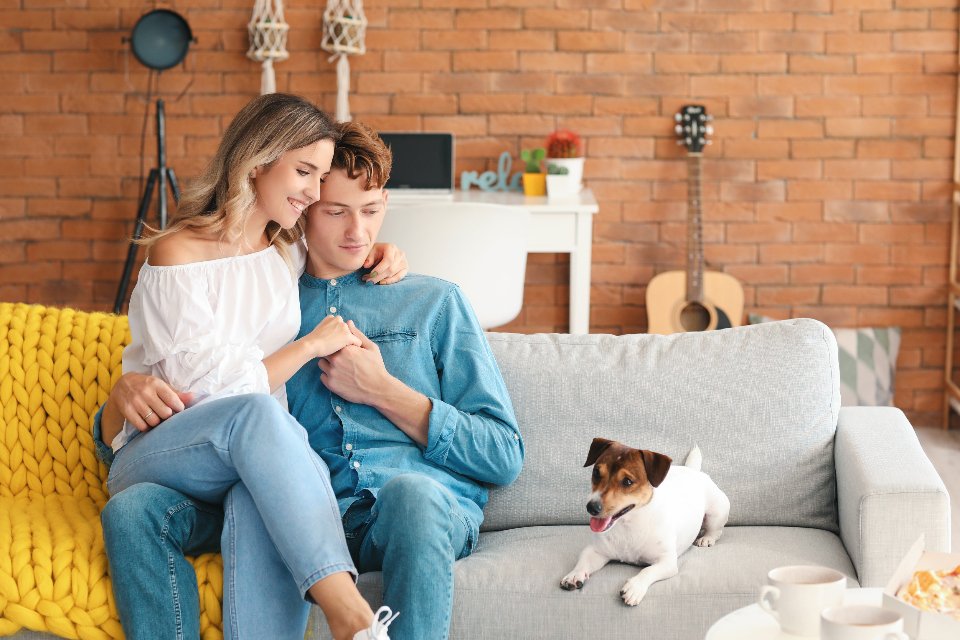Ever notice how your dog seems to know exactly when you need a cuddle or a calming presence? You’re not imagining it—dogs can be incredible emotional support companions. Their ability to sense moods, offer unconditional love, and just be there can make a huge difference during tough times. Whether you’re feeling stressed, anxious, or simply overwhelmed, a wagging tail and a warm nuzzle can feel like therapy in fur form. Let’s explore how your dog might be playing the role of therapist in your everyday life—without even trying!
When a Wagging Tail Feels Like a Warm Hug
Imagine coming home after a tough day, your mind swirling with worries, and suddenly, your dog greets you with pure excitement. That tail wags, those eyes sparkle, and your troubles seem to melt away. For many, this moment isn’t just adorable—it’s deeply healing. Dogs have an uncanny ability to sense our emotions and respond in ways that make us feel seen and comforted. It’s not an exaggeration to say that, for countless people, their dog is the therapist they never knew they needed. This connection between humans and their furry friends goes far beyond companionship, touching something profound in our hearts.
The Science Behind Canine Comfort
Science has started to catch up with what dog lovers have always felt: dogs can help reduce stress and anxiety. Studies show that simply petting a dog can lower your blood pressure and release oxytocin, often called the “love hormone.” This hormone helps people feel more relaxed and connected. Therapy dogs are even brought into hospitals and schools to help people cope with trauma or stress. The research is clear—dogs don’t just make us feel good; they actually help our bodies calm down. It’s amazing to think that a simple nuzzle from your pup has real, measurable effects on your health.
Emotional Support Animals: What Sets Them Apart?

You might have heard the term “emotional support animal” or ESA before. Not all pets are officially ESAs, but many dogs naturally provide emotional stability to their owners. ESAs are prescribed by mental health professionals to people who struggle with emotional or psychological challenges. Unlike service dogs, they aren’t trained to perform specific tasks, but their very presence can be soothing. Many people with anxiety, depression, or PTSD find comfort in their dog’s steady companionship. Their dogs don’t judge, don’t interrupt, and always seem to know when their owner needs a gentle paw or a warm cuddle.
Unconditional Love: The Heart of the Bond

There’s something magical about the unconditional love a dog offers. No matter your mood, appearance, or mistakes, your dog loves you just the same. This unwavering loyalty can be incredibly healing for people who feel lonely or misunderstood by others. Knowing that your dog is always thrilled to see you provides a sense of security and belonging. Dogs don’t care about your job, your bank account, or your flaws—they just want to be with you. In a world filled with judgment and pressure, this kind of love is rare and precious.
Dogs as Silent Listeners
Have you ever talked to your dog about your problems? You’re not alone. Many people find it easier to open up to their pets than to friends or family. Dogs listen without interrupting or offering unwanted advice. They don’t roll their eyes or get bored—they simply sit by your side, offering quiet companionship. This makes it easier to process feelings or talk through problems. Even though your dog can’t talk back, the act of speaking out loud to a nonjudgmental listener can be surprisingly therapeutic.
Routine and Responsibility: Anchors in Rough Waters
Dogs thrive on routine, and their need for daily walks, feeding, and playtime can provide structure for their owners. For people struggling with depression or anxiety, having a dog gives them a reason to get out of bed and face the day. The responsibility of caring for a pet can be a powerful motivator. It’s not just about the physical activity—knowing that another living creature depends on you can create a sense of purpose and meaning. This daily rhythm can help anchor people during turbulent times, making life feel a little more manageable.
The Power of Touch: Healing Through Hugs and Pets
Physical touch is a basic human need, and dogs offer it freely. Cuddling or petting a dog releases endorphins, which help improve your mood. For people who feel isolated or touch-starved, this contact can be incredibly restorative. Dogs aren’t shy about leaning into you or curling up in your lap, and this closeness can break through feelings of loneliness. It’s almost as if dogs know exactly when you need a little extra warmth. In a world where human touch can sometimes be hard to come by, a dog’s soft fur and steady heartbeat can be deeply comforting.
From Laughter to Tears: Dogs Ride Every Emotion With Us

Dogs have an amazing way of matching our moods. If you’re feeling down, your dog may quietly sit by your side, offering comfort. When you’re happy and playful, your dog’s excitement is contagious. This emotional attunement can help you process both joy and sorrow. Some people even say that their dogs have “saved” them during their darkest moments, simply by being there. Whether you’re laughing at your dog’s silly antics or crying into their fur, your dog remains a steady, loving presence.
Building Social Bridges: Dogs as Icebreakers
Walking a dog or visiting a dog park instantly makes you part of a community. Dogs are natural icebreakers, helping shy or anxious people strike up conversations with strangers. Many friendships—and even romances—have started thanks to a shared love of dogs. For people who struggle with social anxiety, a dog can be the bridge that connects them to others. Having a dog at your side gives you something to talk about and can make social situations feel less intimidating. In this way, dogs don’t just support us emotionally—they help us build connections with the world around us.
Why Your Dog Might Be the Best Therapist You’ll Ever Have
Dogs don’t have fancy degrees or offices lined with diplomas, but their impact on our emotional well-being is undeniable. They offer a listening ear, a warm presence, and unconditional love—all without judgment. For many, the bond with their dog is a lifeline in tough times, offering comfort, laughter, and hope. It’s no wonder so many people consider their dog to be their unofficial therapist. With every wag, nuzzle, and loving gaze, our dogs remind us that sometimes the best therapy doesn’t come with words—it comes with a wet nose and a wagging tail.
Your dog might not have a degree, but their emotional support is real, powerful, and often just what you need. From quiet companionship to intuitive cuddles, they show up in ways that truly matter. Recognizing their role in your emotional well-being deepens the bond you share. So the next time your pup curls up beside you on a hard day, know that in their own way, they’re helping you heal—one wag at a time.





